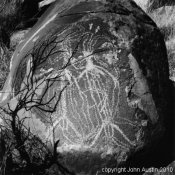IIRC, Sean chose "Analog" Photographers User Group because it was reasonably distinctive, sufficiently understandable as being distinct from Digital, and because most of the other possibilities were unavailabe  .
.
It is sort of like Kodak - a phrase (word) chosen to mean something.
 .
.It is sort of like Kodak - a phrase (word) chosen to mean something.



 that was also an obtuse jab at people who are under the impression a digital camera is 100% digital. Being in IT for a few decades, I remember and have worked with a few analog computers as well, both electronic and mechanical ones, (K&E rules).
that was also an obtuse jab at people who are under the impression a digital camera is 100% digital. Being in IT for a few decades, I remember and have worked with a few analog computers as well, both electronic and mechanical ones, (K&E rules). 




